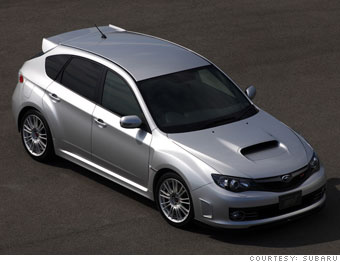
Most modern AWD systems can monitor traction of all four wheels and instantly shift power to the wheels with the most traction and away from those with less.
But it's important to remember that AWD helps a car get going, but it doesn't help at all with stopping. And it can make a vehicle feel deceptively secure on slippery roads.
"Some people say that AWD just gets you in trouble quicker," says Consumer Reports' David Champion.
AWD also detracts from fuel economy by about one to two miles per gallon, according to Consumer Reports' testing.
A FWD car with winter tires can offer nearly the same winter capabilities as an AWD car with regular tires, he says. And ideally it will have better stopping power, lower cost and better fuel economy.
But even if they should, few car owners these days want to bother with switching tires twice a year, says Edmunds of Edmunds.com.
"I think that makes the case for AWD more compelling," he says.
More galleries
